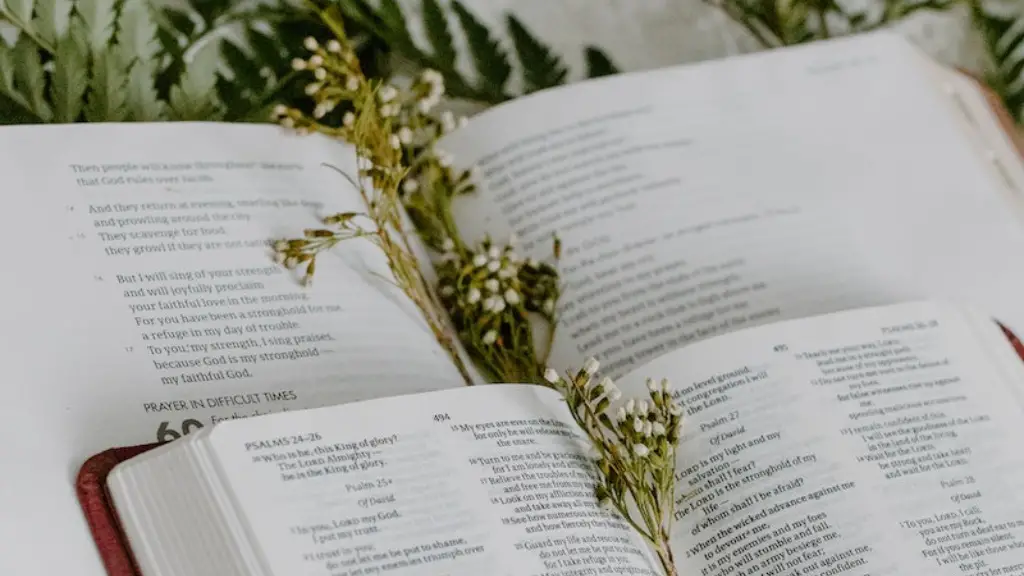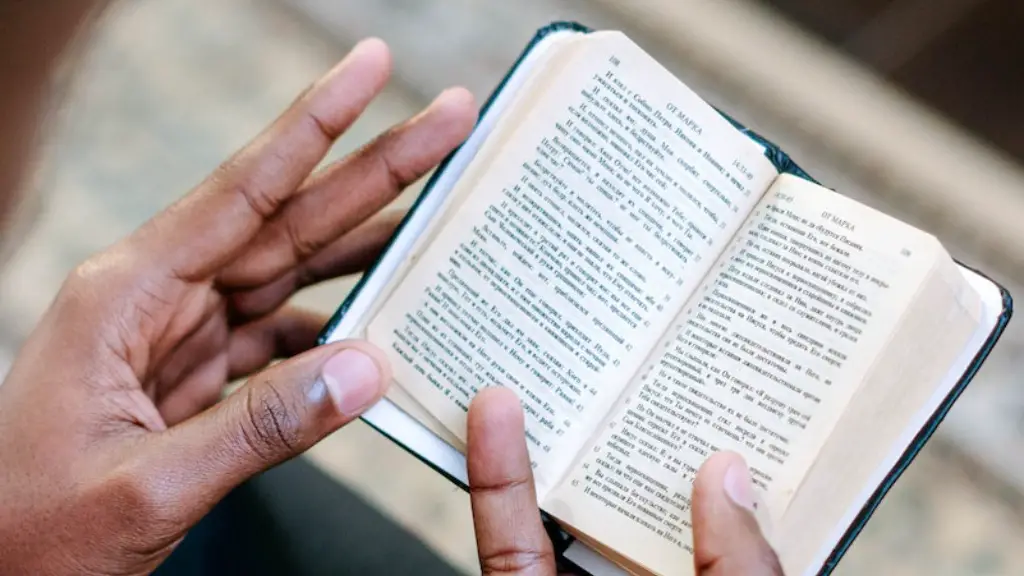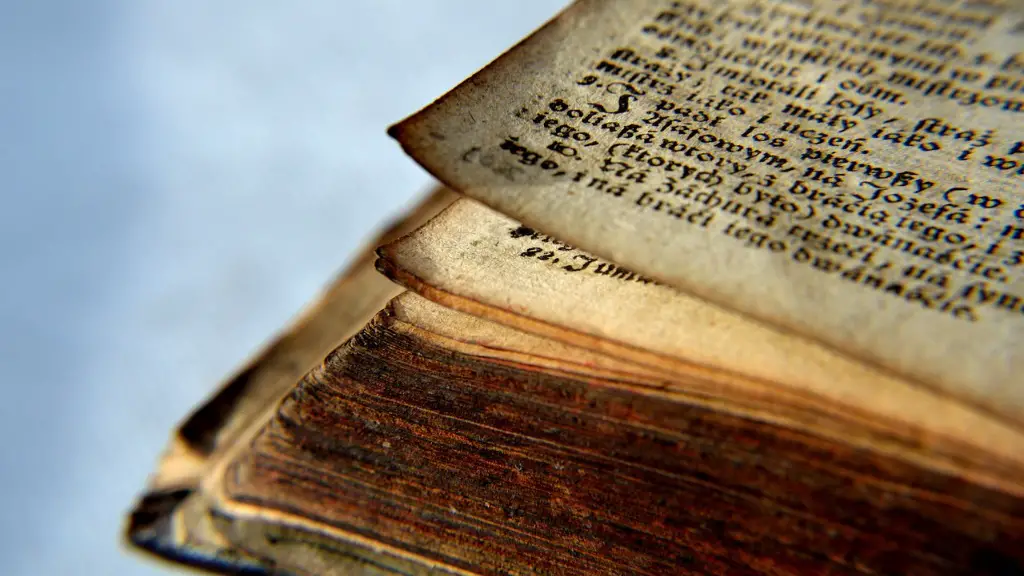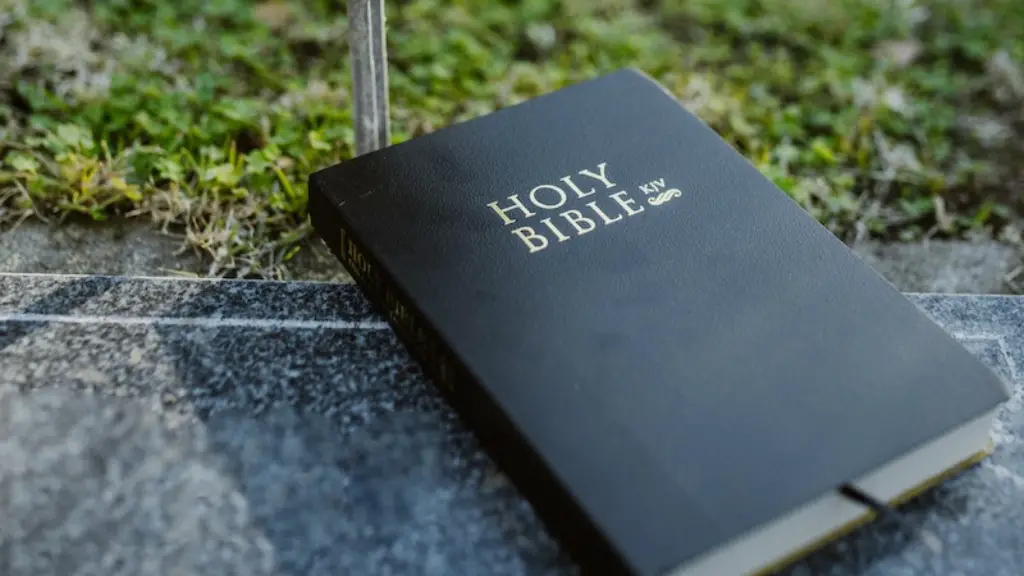What Is Myrrh In The Bible
Myrrh is an aromatic resin that has been used throughout history, particularly in the Bible. In ancient times, myrrh was used medicinally and ceremonially, as it was seen as having a spiritual significance. From its mention in the Bible, the importance and use of myrrh throughout history cannot be denied.
Originally, myrrh was harvested from Commiphora trees that grew in the Middle East and the Horn of Africa. These trees are small and shrubby and can have a trunk diameter of up to 6 cm. The resin is harvested from the tree in several ways, including tapping, where the resin is manually collected from small cuts made in the trunk of the tree.
Myrrh was most famously used in Biblical times and mentioned in the Bible more than 25 times. One of the earliest mentions is in Genesis, when Abraham was asked to sacrifice his son Isaac. It is mentioned when Abraham was offered a ram to be sacrificed instead – “Abraham looked up and there in a thicket he saw a ram caught by its horns. He went over and took the ram and sacrificed it as a burnt offering instead of his son” (Genesis 22:13). Myrrh was also one of the gifts given to baby Jesus by the Wise Men when they visited him at the manger.
Myrrh was thought to have been given as a gift in this way due to its spiritual significance. It was used in anointing rituals, funerary rites and embalming practices by Ancient Egyptians, and because of its strong smell, it was believed to ward off evil spirits and disease. In Ancient Greece, myrrh was used in the preparation of kyphi,”a special type of incense that was burned in religious ceremonies” (Kyphi INC., 2020).
In modern times, myrrh is still used for religious ceremonies, particularly in Christian churches. Many churches carry a vial of myrrh in order to sanctify holy places such as altars and baptismal fonts. As well, myrrh is still used medicinally, as it has antiseptic and antifungal properties that make it useful in treating wounds and infections.
Myrrh has also been used in perfumes, cosmetics and even food, as it adds a subtle woody, slightly sweet aroma. Regardless of its current use in modern times, the importance and spiritual significance of myrrh still remains, due to its long and illustrious use in the Bible.
Uses of Myrrh
Myrrh has been used for many centuries in a variety of ways – from its use medicinally, ceremonially and for spiritual meaning. It has been used in religious ceremonies for hundreds of years, and even today it can be used in Christian churches to sanctify holy places.
For medicinal purposes, myrrh has been used for its antiseptic and antifungal properties, as well as for easing congestion, sore throats and skin irritations. As well, it is known for its anti-inflammatory properties, and has been used traditionally to treat a variety of ailments.
Myrrh is also used in perfumes and cosmetics, and even in food – it can be added to tea to give it a woody, earthy flavour, or sprinkled over desserts or used to flavour other drinks.
Finally, myrrh is still used for its spiritual significance due to its mention in the Bible. Many Christians carry small vials of myrrh in order to ward off evil spirits, or used it to meditate on the spiritual meanings that are found in the scripture.
Benefits of Myrrh
Myrrh has a long list of benefits, which is why it has been used in so many forms throughout history. From its antiseptic and antifungal properties to its ability to soothe sore throats, skin irritations and congestion, there is no denying that myrrh is a powerful remedy.
Myrrh is known for its anti-inflammatory properties, and can be used to treat a variety of inflammatory conditions such as arthritis and gout. Additionally, myrrh is known to help reduce anxiety and stress, as it has sedative and calming effects.
Myrrh can also be used in aromatherapy as it has a strong, woody scent that is known to ease tension and promote relaxation. As well, its spiritual significance makes it a perfect choice for use in religious ceremonies and rituals.
Finally, myrrh is known to be an anti-ageing aid – it can help reduce wrinkles and fine lines, and is said to have powerful antioxidant properties that can help fight free radicals.
Side Effects of Myrrh
Although myrrh has many benefits, it is important to note that it can also have side effects, particularly when used in large amounts or in concentrated forms. Some of the known side effects of myrrh include rashes, skin irritation, nausea, and vomiting.
Myrrh should also not be used in pregnant or breastfeeding women, as it is not known if it is safe. As well, it is not recommended to be used on children, due to the possible side effects.
Finally, myrrh should not be taken with certain medications, such as blood thinners and antacids, as it can have a negative interaction and lead to adverse reactions.
Health Benefits of Myrrh
Myrrh has been used for thousands of years for its medicinal and health benefits. From fighting off infections to reducing inflammation and easing congestion, there is no denying the power of this ancient remedy.
Myrrh is known for its antiseptic and antifungal properties, which can be used to fight off bacteria and infections. It is also known for its ability to reduce inflammation and soothe sore throats, as well as its anti-ageing benefits. Its antioxidant properties can help fight off free radicals, and its sedative effects can help reduce anxiety and stress.
Myrrh is also known to improve circulation, which can help heal wounds and speed up the healing process. As well, it can be used to treat digestive issues, as it helps reduce bloating and gas.
Finally, myrrh can be used topically to treat skin infections and wounds, as it is known to help promote faster healing. It can also be used for boils, sores and rashes. Myrrh can even be massaged into the scalp to promote hair growth and to nourish the hair and scalp.
History of Myrrh
Myrrh has been used for thousands of years for its medicinal and spiritual properties. In the Bible, myrrh is mentioned 25 times, most famously when the Wise Men visited baby Jesus at the manger with three gifts – gold, frankincense and myrrh. It is mentioned in the book of Genesis when Abraham took a ram instead of his son to be sacrificed, as a “burnt offering”(Genesis 22:13).
In Ancient Egypt, myrrh was used as part of anointing rituals, funerary rites, and even in embalming. In Ancient Greece, it was used in the preparation of a special type of incense called kyphi, which was burned in religious ceremonies.
Today, myrrh is still used for its medicinal and spiritual beliefs. It is still used in many religious ceremonies, particularly in Christianity, to sanctify holy places. It is also used medicinally, with its antiseptic and antifungal properties being used to treat wounds and infections. Finally, myrrh is still used in perfumes, cosmetics, food, and even for its spiritual significance.
Where To Buy Myrrh
Myrrh can be purchased in a variety of forms, including powder, resin, essential oil, or as an ointment. It is available online in health food stores, as well as in many health and wellness stores. Additionally, some stores may carry myrrh in the form of incense, which can be used in religious ceremonies.
It is advised to buy myrrh in its natural form, as concentrated forms can lead to adverse reactions and should be avoided. As well, it is recommended to research any brand before purchasing, as some brands may contain certain additives that could potentially have a negative effect.
It is also important to note that different types of myrrh can have different effects and potency, so it is best to consult with a qualified medical practitioner or health care professional before using myrrh for medicinal purposes.





